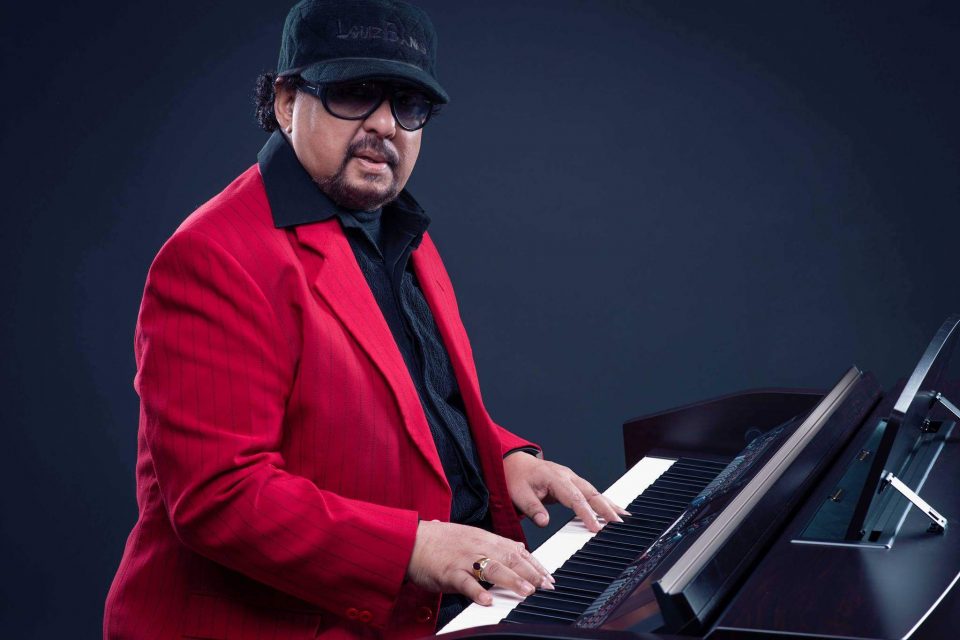Louiz Banks: India’s Jazz Treasure
A jazz musician is a product of his environment and we’re thrilled that the pianist was born and brought up in India
This is not a plug for Louiz Banks. He really doesn’t need one. We just want to appreciate and celebrate the career of a person variously called the Godfather or the Badshah/Shehanshah of Indian Jazz. Neither of these terms is either fair to Banks or does justice to the long years of service this man has provided for music in India. Placing him on a pedestal is neither here nor there.
Hearing Chick Corea play in Mumbai last week, one’s thoughts went to the class of music provided to Indian audiences by Banks. He is a contemporary of Corea’s; had he been born or even lived in the United States in the late Sixties and Seventies, Banks may well have been the sort of icon that is Corea or Herbie Hancock. He might well have recorded with Miles Davis.
But a jazz musician is a product of his environment and we’re thrilled that Banks was born and brought up in India and in our midst. It is his immense work in an area so far away from the fertile mainstream of jazz, the United States, which has gained him his success as a jazz pianist extraordinaire.
Consider the conditions in which Banks cut his ‘jazz’ teeth in India. As anyone familiar with Mumbai-based author Naresh Fernandes’ brilliant book Taj Mahal Foxtrot: The Story of Bombay’s Jazz Age will know, jazz made its debut in India in the Thirties when it was music for dancing in the dining room of the Taj Mahal Hotel in Bombay. Tunes and songs made popular in the U.S. were played as covers at these sessions.While jazz in the U.S. moved on beyond being just dance music, in India it had spread to other cities but essentially remained music for dancing. Playing covers was the norm and not much, if any original jazz emanated from the jazz bands. It was just entertainment for diners.
Banks came into this ‘jazz’ environment in Calcutta. He was immediately noticed as a special talent. His great advantage was the fact that he came from a rich musical background; his father (who named him Louis after the great Louis Armstrong) was a trumpet player and Banks’ grandfather was also a musician: he wrote the National Anthem of Nepal, their country of origin. Banks had been born with music surrounding him as he grew up. He was not content to be just a night club pianist; he was far too creative for that.
With this background, Banks probably saw and heard jazz differently to the other Indian ‘jazz’ musicians. A little known but interesting fact about the pianist is his involvement in the organization Jazz India which was responsible for the fabulous Jazz Yatra festivals between the Seventies through to the Nineties. How was Banks involved? There’s a story; In 1974 a Danish jazz vocalist, Karin Krog, was passing through Bombay. A group of local jazz enthusiasts – Soli Sorabjee, Niranjan Jhaveri, Jehangir Dalal, yours truly and a few others organized an afternoon session at the President Hotel. Local musicians were needed to back Krog”¦ The pianist called was Louis Banks from Calcutta! Others were Braz Gonsalves on saxophone and Manohari Singh on flute, among others. It was a very successful concert and ultimately led to the creation of Jazz India. Banks had done a marvelous job backing Krog — who has recorded with the likes of Dexter Gordon, Niels Pederson and others. Banks sounded like he belonged on the international scene. He was brilliant. Subsequently, he participated in some of the Jazz Yatra festivals as well.
Since that time, Banks has played an important role in the vibrant band of music director R.D.Burman, for several film musical scores. Also, his musical creativity was fully tested in his writing of advertising jingles by the dozen. He excelled in both these roles.
Teaming with Braz Gonsalves, Pam Crain, Ranjit Barot and others, Banks reached new heights of jazz performance. His curiosity also had him delving into the merger of jazz piano with Hindustani and Carnatic sounds, particularly percussion instruments. He has played extensively with the likes of Zakir Hussain — with whom he tours internationally. He also plays with Sivamani, Shankar Mahadevan, Sanjay Divecha and has his regular jazz trio with Sheldon D’Silva on bass and his son Gino Banks on drums.
One has heard Banks in several settings, playing with the superstar Dizzy Gillespie on his 1985 India tour, with New York-based jazz vocalist Yolanda Bavan and then seamlessly donning his other avatars seamlessly, playing fusion, bebop, the blues or a Raag on his piano or keyboards!
Do we take this man for granted? I have never heard him having an off day, so yes, we expect a perfect 10 performance from him each time, and he never fails.
What is left for Louiz to achieve? Try this: just as the music of Antonio Carlos Jobim has been integrated into the mainstream of jazz, or the Cuban percussions from Chano Pozo are now part of the jazz sound, is there not some unique strain of Indian music, whether classical or Bollywood which can be integrated into jazz. Not fusion jazz — which is nebulous at best, but into the flow of the 120-year tradition of jazz. What do you say, Louiz?
At a personal level, I would walk miles to hear Louiz Banks in a traditional setting with him playing a Steinway, saxophone, trumpet, acoustic bass and drums playing bebop ballads and the Great American Songbook.
Thank you for all you’ve done, my friend, Louiz Banks. You’re a jazz treasure.







